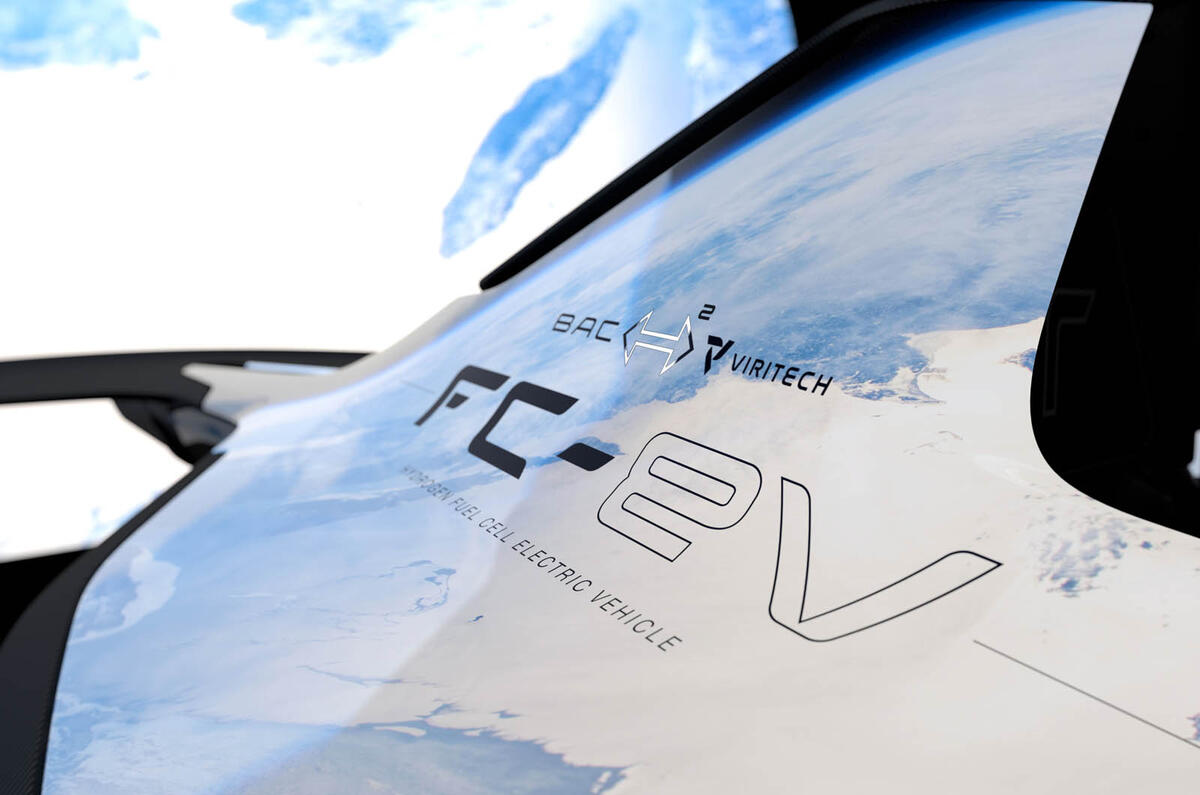Liverpool-based sports car manufacturer BAC has partnered with engineering outfit Viritech to develop a hydrogen fuel cell (FCEV) version of its Mono sports car.
Viritech, which is developing a 1100bhp FCEV supercar at the MIRA technology park, has been awarded funding via the Niche Vehicle Network Feasibility Study Grant and will use it to investigate the feasibility of powering low-volume cars with hydrogen.
BAC is supporting the project by providing the Mono as a basis for the programme. The final product, although no longer powered by a 330bhp naturally aspirated 2.5-litre four-cylinder engine, will continue "to be led by BAC’s principles of uncompromising performance and driver experience".
BAC says its partnership with Viritech is in line with a push to reduce its emissions output by 2030. The company went 'climate positive' in 2019 thanks to its carbon offsetting programme and has previously expressed a keen interest in the use of synthetic fuels as well as efficiency-boosting lightweight construction materials, including graphene and niobium.

Alternative powertrain solutions such as Viritech's hydrogen fuel cell hardware will help BAC to "preserve the delicate balance that weight plays in a vehicle’s driving dynamics". Keeping the Mono FCEV's weight down will be a priority of the project.
Neill Briggs, BAC's co-founder and product boss, said: "We are delighted to be working with Viritech and their ground-breaking approach to FCEV. Technology has always been at the forefront of our development and we remain committed to exploring new automotive innovations within all that we do.
"Alternative fuels, along with lightweight construction methods, reduce vehicle emissions considerably without compromising driver engagement, something we are committed to preserving at BAC.”
Technical details of the Mono FCEV remain under wraps and the companies have yet to confirm a reveal date, or whether it is envisaged as a production car or will remain purely a feasibility study.
In an exclusive interview last year, Viritech co-founder Matt Faulks told Autocar that hydrogen could be a lighter zero-emissions option for sports cars than battery-electric powertrains, as well as being more sustainable.
"You run into two issues when you go down the battery route. One is the ‘mass compounding element’ - the more energy storage you need, the heavier the car gets," he said.













Join the debate
Add your comment
In line with BAC's model this will probably cost at least £100k. I genuinely don't know why anyone would buy one of these cars whatever it is powered by. It's a single seater, why? There's no luggage space, why? What on earth do you do with it? Legally it's difficult to get within 50% of the performance envelope. On track days it will be slower than a £20k 30 year old F2000 car which will cost zip to run. So get up on a Sunday morning and drive around for a couple of hours? I have a huge respect for the integrity and engineering detail of this company but, again, what on earth is it for? Really hope they are successful but not for me.
Odear, just after auto car realised hydrogen cars where going no where, like most people do now, they dig up another hydrogen car story. I can only think BAC were bunged a couple of grand.
Hydrogen cars just went pop.
Hydrogen makes a lot more sense for this sort of thing. Sounds really interesting.